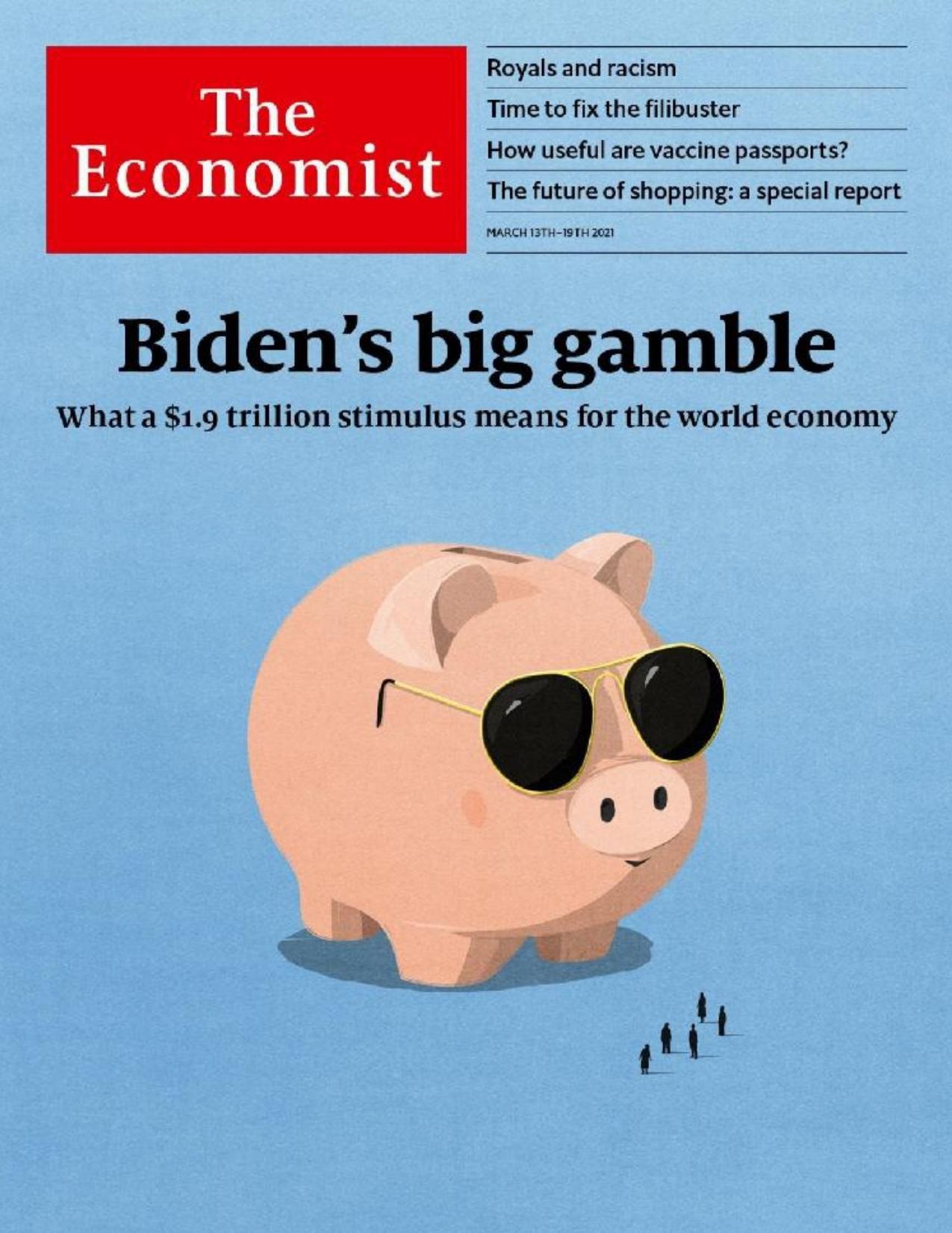The Economist (20210313) by calibre

Author:calibre
Language: eng
Format: azw3, mobi, pdf
Tags: news, The Economist
Publisher: calibre
Published: 2021-03-12T04:02:09.539000+00:00
Not shredding, but polishing
Within these constraints, the government still has substantial leeway to rethink how Britain regulates itself. Red tape will not be slashed, but ministers can trim away reporting obligations, such as having new railway signals approved by the regulator in Lilleâa measure intended to smooth travel over land borders, and which is less useful for an island nation. Mr Eusticeâs department thinks the EUâs pesticides regime can be simplified without weakening it. The Civil Aviation Authority thought leaving the European regime senseless, but now says the rulebook could be rationalised. No voter will notice such changes, but they may produce incremental dividends.
The government is planning to change the way it gives money to the private sector. It wants to invest in scientific research and poor regions. EU state aid and procurement laws are strict, to prevent rich governments favouring their producers. Now that Britain is out, that is less of an issue. Procurement rules will be simplified. Britainâs state-aid regime will be more permissive, with public authorities given greater leeway to make awards so long as they are proportionate and donât prop up dying firms. That should result in more innovative policies from local government, and help universities commercialise research, says James Webber of Shearman & Sterling, a law firm. Critics warn of waste and creeping corporatism.
The Competition and Markets Authority, keen to stand tall alongside its peers in Australia and Japan, has ideas on boosting competition, which it thinks fell in the two decades to 2018. âMany regulations create barriers to entry from which incumbents derive huge benefits,â says Andrew Tyrie, the CMAâs former chair. The agency has proposed scrapping the EUâs regime on allocating airport runway slots, which favours incumbent airlines. It has taken on the biggest antitrust probes previously reserved for Brussels, and plans an innovative regime for tech giants.
The greatest scope for divergence lies in sectors where Britain has a critical mass of activity, notes Thomas Reilly of Covington & Burling, a law firm. Mr Eusticeâs department is consulting on loosening EU rules on gene editing, which can produce more disease-resistant crops, bringing Britain into line with Japan and Australia. As Sir Michael forecast, the MHRA has created a fast-track approvals process to get innovative treatments to market faster, which enabled it to approve covid-19 vaccines far faster than the EMA.
Then thereâs the City. The EU is weighing whether to deem Britainâs regulatory regimes âequivalentâ, which would grant asset managers and insurers market access, but financiers are not sure that the prize is worth the price of accepting EU rules. Andrew Bailey, the governor of the Bank of England, has said Britain should not become a rule-taker. There is little clamour for deregulation, but there is room for improvement. Insurance firms think regulation could work better for them than the EUâs Solvency II rules, which reflect the way continental firms are structured. Challenger banks want prudential capital rules to be tweaked to make the banking business more competitive, and Mr Bailey thinks rules can be simplified for small banks that serve only the domestic market.
Download
The Economist (20210313) by calibre.mobi
The Economist (20210313) by calibre.pdf
This site does not store any files on its server. We only index and link to content provided by other sites. Please contact the content providers to delete copyright contents if any and email us, we'll remove relevant links or contents immediately.
Essentialism by Greg McKeown(1225)
Your Next Five Moves by Patrick Bet-David(1211)
Integrated Business Information Systems by Klaus-Dieter Gronwald(1101)
The Science of Rapid Skill Acquisition by Peter Hollins(919)
The Ten Equations That Rule the World by David Sumpter(728)
Improvise! by Max Dickins(698)
Speaking with Confidence by Nick Gold(681)
The Ten Equations That Rule the World: And How You Can Use Them Too by David Sumpter(673)
How to Write Anything by Laura Brown(661)
Idioms & Phrases by Informative Books(661)
Tableau For Dummies by Molly Monsey & Paul Sochan(642)
Voice-Overs for Podcasting by Elaine A. Clark(640)
The Social Skills Guidebook by Chris MacLeod(623)
How to Decide by Annie Duke(606)
Building a Career in Software by Daniel Heller(602)
Pomodoro Technique Illustrated: The Easy Way to Do More in Less Time (Pragmatic Life) by Staffan Noteberg(601)
How to Communicate Effectively With Anyone, Anywhere by Dan Bullock(578)
Perfecting Your Pitch by Ronald M. Shapiro(554)
Copyediting & Proofreading For Dummies by Suzanne Gilad(550)
